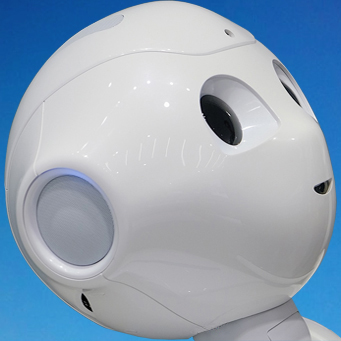
Spending 2020 under the shadow of a pandemic has affected what we need and expect from technology. For many, COVID-19 accelerated the rate of digital transformation: as employees worked from home, companies needed AI systems that facilitated remote work and the computing power to support them.
COVID-19 triggered a massive sense of urgency around digital transformations with the need for remote solutions.
According to a report by Boston Consulting Group, more than 80% of companies plan to accelerate their digital transformation, but only 30% of digital transformations have met or exceeded their target value.
Part of the solution here is to create solutions that will be operated by someone who is not necessarily a data scientist, so more people who are domain experts can manage the programs they need.
If Tesla invented an autonomous car that only data scientists can drive, what’s the point? Technology needs to empower the end user so they can interact with and manipulate models without having to trudge through the finer points of datasets or code – in other words, the AI will do the heavy lifting on the back end, but a user-friendly explanation and UI empowers the end user.
“Solutions become more autonomous with deep learning Deep learning” pioneer Dr. Geoffrey Hinton recently told MIT Technology Review that deep learning will be able to do “Everything” – i.e. replicate all human intelligence.
With deep learning, neural networks approximate complex mathematical functions with simpler ones, and the ability to consider a growing number of factors and make smarter decisions with fewer computing resources gives them the ability to become autonomous.
The promise of curing future pandemics will accelerate research in quantum computing. Quantum computers have the computational power to handle complex algorithms due to their abilities to process solutions in parallel, rather than sequentially.
This is tremendously challenging to do with today’s high-performance computers, but is a problem that lends itself to something at which quantum computers will eventually excel.
The quantum computer could eventually be mapped to the “Quantum system” that is the molecule, and simulate binding energies and chemical transition strengths before anyone ever even had to make a drug.
AI and quantum computing have even more to offer beyond creating the vaccine.
The logistics of manufacturing and delivering the vaccine are massive computational challenges – which of course makes them ripe for a solution that combines quantum computing and AI. Quantum machine learning is an extremely new field with so much promise, but breakthroughs are needed to make it catch investors’ attention.
Tech visionaries can already start to see how it’s going to impact our future, especially with respect to understanding nanoparticles, creating new materials through molecular and atomic maps, and glimpsing the deeper makeup of the human body.
While there have been some connections of AI and quantum computing, or 5G and AI, all of these technologies working together can produce exponential results.
I’m particularly excited to see how AI, quantum, and other tech will influence biotechnology as that might be the secret to superhuman capabilities – and what could be more exciting than that?
